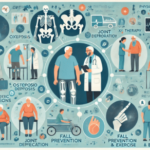
Colon cancer is one of the most common forms of cancer, significantly impacting the lives of patients and their families. Navigating colon cancer care requires a thorough understanding of the disease, treatment options, and the support available throughout the journey. This article outlines essential steps for patients and their families to effectively manage colon cancer care.
Understanding Colon Cancer
Colon cancer, also known as colorectal cancer, originates in the colon or rectum and can develop from polyps, which are small growths that can become cancerous over time. Risk factors include age, family history, dietary habits, and lifestyle choices. Early detection through screenings such as colonoscopies is crucial, as it can significantly improve treatment outcomes. Patients should be aware of the symptoms, which may include changes in bowel habits, abdominal discomfort, and unexplained weight loss.
Seeking Medical Advice
Once diagnosed, it is vital for patients to seek professional medical advice from healthcare providers who specialize in colon cancer care. This may include gastroenterologists, oncologists, and surgical teams. Open communication with the medical team allows patients to ask questions about their diagnosis, treatment options, and prognosis. Patients should not hesitate to seek a second opinion to ensure they are comfortable with their treatment plan.
Developing a Comprehensive Treatment Plan
A comprehensive treatment plan for Colon cancer care typically includes various modalities such as surgery, chemotherapy, and radiation therapy. The choice of treatment depends on the cancer stage, location, and individual patient factors.
- Surgery: Often the first line of treatment, surgery aims to remove the tumor and surrounding tissue. In some cases, a colostomy may be necessary.
- Chemotherapy: This involves the use of drugs to kill cancer cells or stop their growth. Chemotherapy can be administered before or after surgery, depending on the specific circumstances.
- Radiation Therapy: Often used in combination with surgery and chemotherapy, radiation can help shrink tumors or eliminate remaining cancer cells.
Patients and families should actively participate in discussions about the treatment plan, including potential side effects, benefits, and the expected timeline of treatment.
Managing Side Effects
Colon cancer care often involves managing various side effects associated with treatment. Common side effects include fatigue, nausea, changes in appetite, and gastrointestinal issues. Here are some strategies to manage these side effects:
- Nutrition: Maintaining a balanced diet can help alleviate some side effects. Consulting with a nutritionist who specializes in cancer care can provide tailored dietary recommendations.
- Physical Activity: Engaging in light physical activity, as advised by the healthcare team, can boost energy levels and improve overall well-being.
- Support Systems: Emotional and psychological support is essential during this time. Families should encourage patients to join support groups where they can connect with others undergoing similar experiences.
Follow-Up Care and Surveillance
After the initial treatment phase, follow-up care is a critical component of colon cancer care. Regular check-ups with healthcare providers help monitor for any signs of recurrence. This may include imaging tests, blood tests, and colonoscopies, depending on the specific treatment received and the individual’s risk factors.
Patients should be proactive in scheduling follow-up appointments and reporting any new symptoms to their healthcare team. Education about the signs of recurrence can empower patients and families to seek timely intervention if necessary.
Accessing Support Services
Navigating the complexities of colon cancer care can be overwhelming for patients and their families. It is essential to utilize support services that can enhance the quality of care. This includes:
- Palliative Care: Integrating palliative care early in the treatment process can help manage symptoms and improve quality of life, regardless of the stage of the disease.
- Psychosocial Support: Counseling services can provide emotional support for patients and their families, addressing the psychological impact of cancer diagnosis and treatment.
- Financial Assistance: Patients may face financial challenges due to treatment costs. Organizations that offer financial support or assistance in navigating insurance can alleviate some burdens.
Conclusion
Navigating colon cancer care is a multifaceted journey that requires careful planning and support. By understanding the disease, developing a comprehensive treatment plan, managing side effects, prioritizing follow-up care, and accessing support services, patients and families can effectively navigate the challenges of colon cancer. Open communication with healthcare providers and a strong support system will empower patients to take an active role in their care, ultimately improving their quality of life during this critical time.


